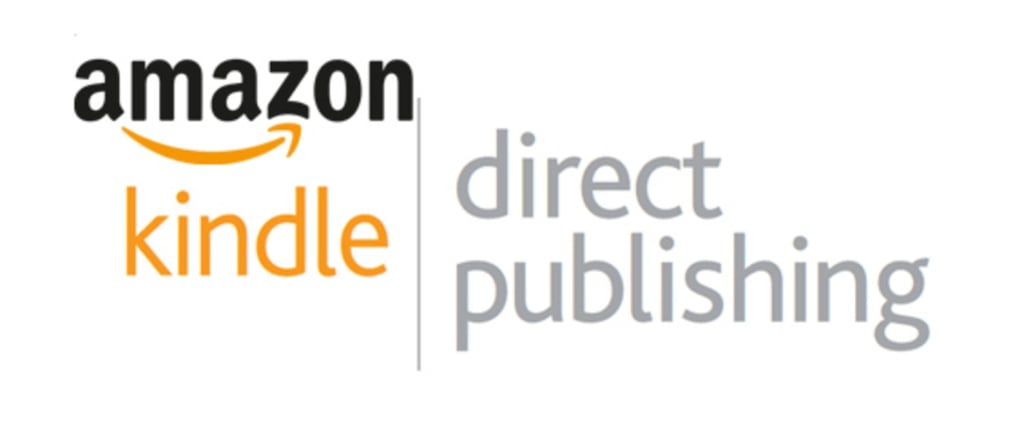Amazon Kindle Direct Publishing (KDP) for South African Writers
A guide to Amazon's Kindle Direct Publishing, or KDP, for the South African writers who need it.
SOUTH AFRICAWRITINGSA BOOK PUBLISHINGBLOGKINDLE DIRECT PUBLISHING
Justin van Huyssteen
8/19/20244 min read


When it comes to self-publishing, the biggest go-to place is Amazon’s Kindle Direct Publishing, or KDP, platform. This is a publication platform that allows anyone to write and publish what they want. Today, we are going to look over the platform and how it relates to South African writers who may be interested in using the platform.
What Is Kindle Direct Publishing?
Kindle Direct Publishing is a publishing platform hosted by Amazon that allows for the sale of physical and digital books. It has the largest audience in the world and if you hope to get to an American audience, it is typically seen as a necessity. You generally want to have your book on Amazon because that will increase your reach. There are plenty of other platforms out there that do not accept a variety of currencies or banks, and so if you want to reach the largest number of people, you should use Kindle Direct Publishing.
As a South African author, it is very useful. While Amazon is still new to the local market in terms of its South African branch rollout, the Kindle Direct Publishing platform has been around for years. You can upload your books and then set the price in dollars, but you can adjust it based on individual countries around the world. You will also be paid in Rands, so you do not need to worry about any kind of conversion rates on your side.
KDP Orders versus KENP Read
When you decide to publish your book on Amazon’s Kindle Direct Publishing platform, you will have two primary means of making money. There are the standard KDP orders that you can make or the KENP read metric. The first of these is very standard. Any KDP orders are simply sales that you have made. These are books that people have bought, and you have sold them. Very basic stuff!
It becomes a little different when it comes to the use of Kindle Edition Normalized Pages (KENP). This is only available to you if you decide to place your book on the Kindle Unlimited (KU) service. This is a subscription service that allows readers to pay a monthly fee and get access to every book on Kindle Unlimited. Think of it like Netflix for books. The reader does not buy your book but rather reads whatever they want without any additional costs.
You may wonder how you make money then. Well, you get a fraction of the total amount that comes from each read. You will typically make less off these reads, but it will give you access to a much larger audience. So, it can be seen as a good way to build an audience, and it’s good for the consumer. However, it requires ebook exclusivity. If you put your book on Kindle Unlimited, you cannot sell any digital copies anywhere else. This stifles your ability to publish your work elsewhere. You can still sell physical copies anywhere you want, but ebooks will be limited to Amazon’s Kindle Direct Publishing platform.
Like everything else with Amazon, you will have full access to all of these options as a South African author. You will receive your royalties regardless of whether or not the books have been purchased or read on Kindle Unlimited. Just remember that Kindle Unlimited is an opt-in service, and you do not have to do it. It is your choice!
Kindle Direct Publishing Royalties
Kindle Direct Publishing offers two royalty split models. You can either earn 35% or 70% from your books, and you get to choose which option you want based on the countries in which these options are provided. This does not mean that as a South African writer, you are tethered to one or the other, but rather that certain countries in which your book is sold will allow for one or the other.
Any royalties that you earn can be paid directly into a South African bank account. However, as a South African, you will be required to fill in a reporting mandate. This is a document that the South African Reserve Bank requires if you are receiving money from overseas. It will be emailed to you once you are set to receive the money. Simply fill it in and send it off!
Kindle Direct Publishing Print on Demand
If you decide to use the Kindle Direct Publishing platform, you can sell your books in three main ways: ebook, paperback, and hardcover. The platform allows you to select Amazon’s print-on-demand function, and this means that you do not need to pay for the cost of printing anything. All you need to do is provide the book and Amazon will print it for you. This does mean that they will subtract from each sale the cost of the printing, but it allows you to offset those costs. There is no need to print and stockpile books yourself when Amazon can simply print as copies are sold.
Here is where there’s some bad news for South African authors. While you certainly can use Kindle Direct Publishing’s print-on-demand features, they are not very good for selling to South African readers. It’s great for Americans and a few other countries, but the shipping costs to send anything to South Africa is often quite exorbitant. However, as Amazon is still in the process of its South African rollout, those prices may decrease. We will have to see.
Should You Use Kindle Direct Publishing as a South African?
There are many advantages to using Kindle Direct Publishing as a South African author. You will have access to a large international audience while also gaining access to print-on-demand features and a robust typesetting software that is used for Amazon’s ebook formatting. The only real downside is the current lack of infrastructure for South African readers to receive physical books from Amazon. All in all, Amazon’s Kindle Direct Publishing platform is a worthwhile investment for South African authors.
Hopefully, this has been a helpful resource on Amazon’s Kindle Direct Publishing for South African writers. We have gone over some of the basics, but if you have any further questions, you can contact us. Additionally, you can also follow Wolfdog Publishing on Twitter to see any updates or ask any questions.
